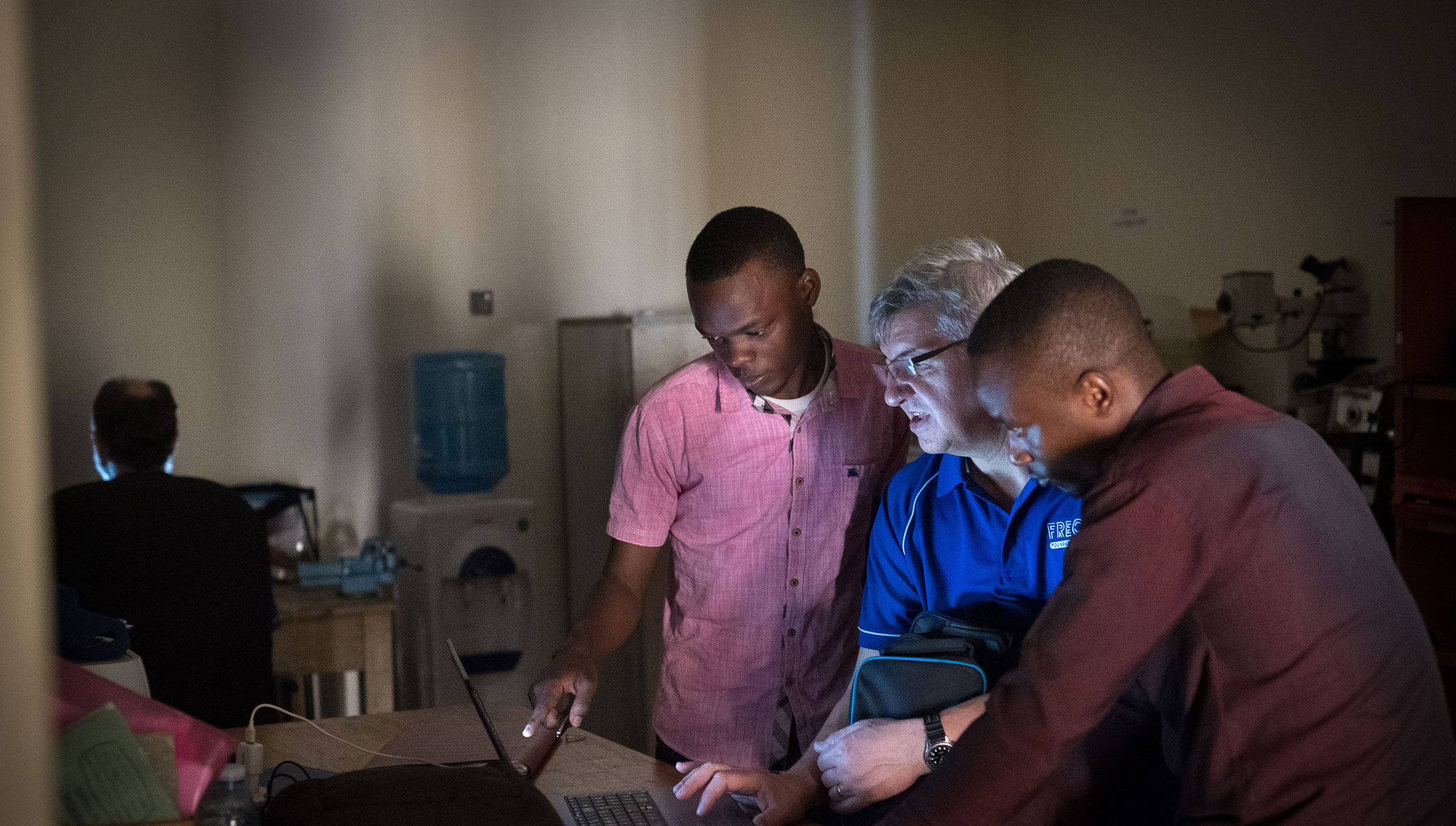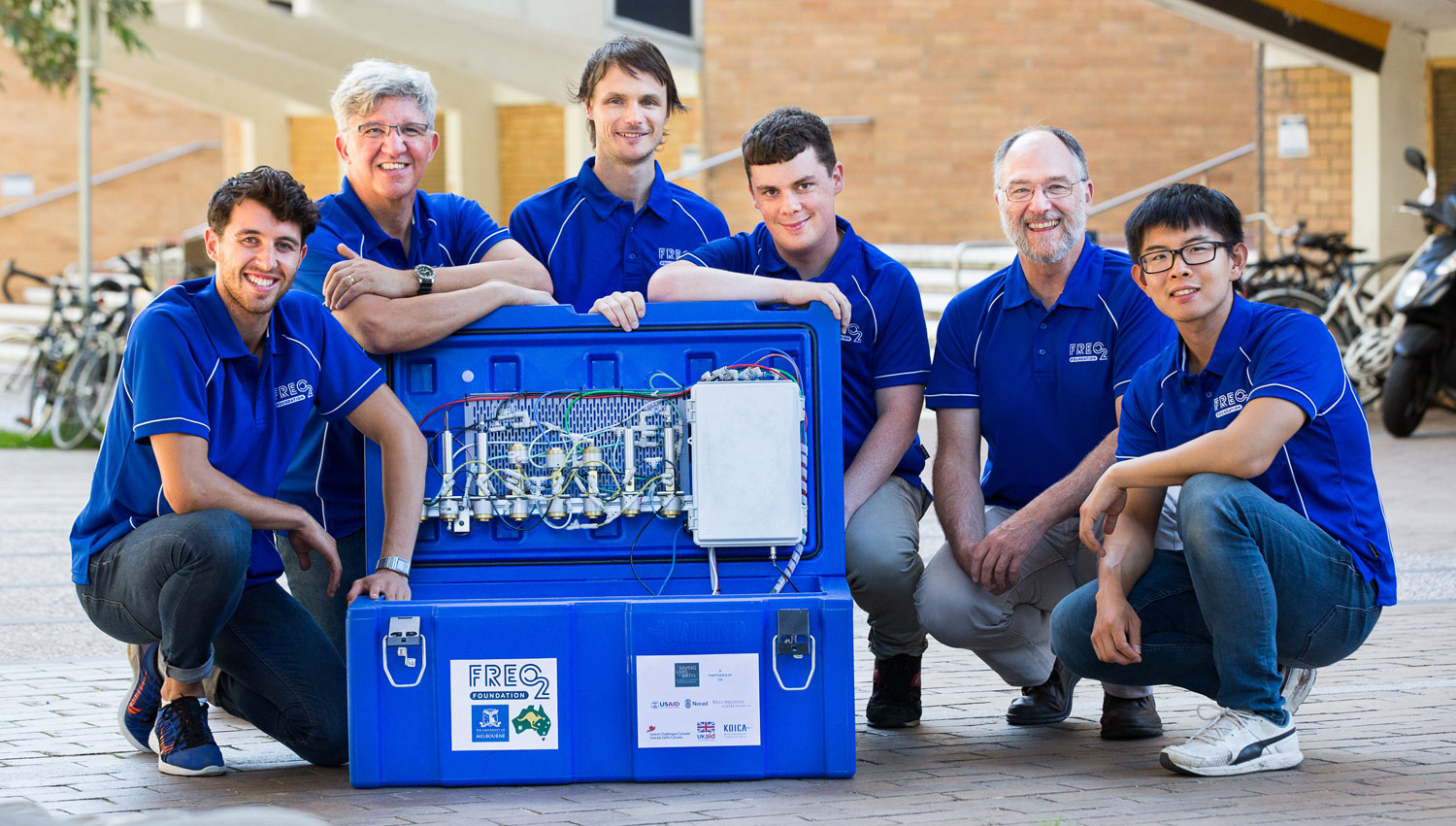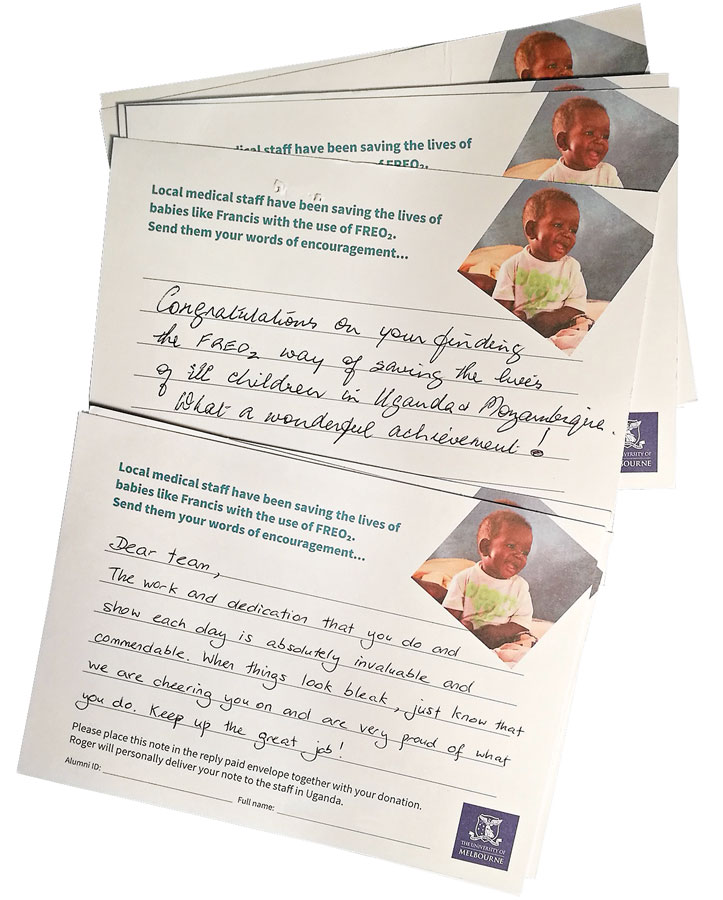Out of Thin Air
After years of testing and development, a multidisciplinary team of University of Melbourne researchers led by physicists Associate Professor Roger Rassool and Dr Bryn Sobott have turned a light bulb moment into something that promises to save many thousands of children from deadly pneumonia.

Associate Professor Roger Rassool working with engineers at the healthcare clinic in Mbarara, Uganda.
In 2018, in a remote healthcare clinic in Mbarara, Uganda, the team saved their first life when they successfully trialled their invention, called FREO2, which can provide a continuous supply of oxygen without the need for electricity. So far, it has helped save the lives of more than 100 children in their care.
FREO2, or Fully Renewable Energy Oxygen, can run on any energy source and is the only technology in the world capable of producing medical-grade oxygen without electricity. FREO2 devices are affordable, appropriate and versatile for use in low and middle-income countries.
The breakthrough is crucial as many regional medical centres in these countries have unreliable access to the electricity normally needed to power oxygen concentrators, which can also be expensive and difficult to maintain.
Prior to this, we explained to our community of supporters the importance of this technology: pneumonia kills 2,500 children every day. More than 1,000 people responded, with their donations helping us exceed the target of $150,000, needed to support clinical trials in Mozambique. Of these donors, more than 500 were giving through the University for the first time.

Associate Professor Roger Rassool and Dr Bryn Sobott (2nd and 3rd from left) and Associate Professor Jim Black (5th from left) with members of the FREO2 research team
Thanks to this generosity, Associate Professor Rassool and Dr Sobott have advanced their outstanding work to the next stage. Their research collaboration in Mozambique is with the Manhiça Health Research Centre (CISM) in Maputo, where significant progress has already been made towards saving lives of children with pneumonia. Equipment is being shipped, ethics approval is almost complete and a young local engineer, Ashley Chiludo, is undertaking training for the installation and maintenance of the equipment.
By the end of February 2019, donations in support of FREO2 exceeded $200,000, surpassing expectations and enabling the team to extend their trials further. Thanks to this generosity, the team was able to take this technology to Tanzania, where the establishment of a social enterprise to install and maintain the oxygen systems was unexpectedly swift.
The new equipment had only just been installed when a very small child came into the hospital suffering respiratory distress. Using an oximeter, which is part of the FREO2 package, the local medical team were able to measure the child’s oxygen saturation levels which were at a very risky level of 77 per cent (healthy children record levels between 95-98 per cent) and immediately provide the oxygen the infant needed.
Demonstrating that FREO2 can save lives anywhere, whenever it’s called upon, will be vital in securing World Health Organization endorsement to be able to roll out this technology around the world.
The Melbourne team wanted FREO2 to be adopted and used by whoever needs it and are keen to take it to Timor, PNG and the Solomon Islands. Their goal was to have 100 systems in place by the end of 2020.

Associate Professor Roger Rassool and Dr Bryn Sobott say their position at the University gave them the space and time to test prototypes over a period of six years, after they first became aware of the terrible cost to children worldwide of pneumonia. It has also made it easier for them to approach experts from other disciplines, such as medicine, finance and even plumbing.